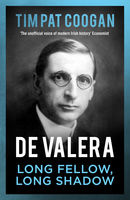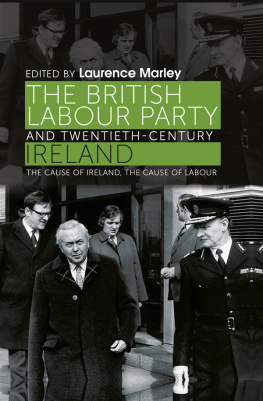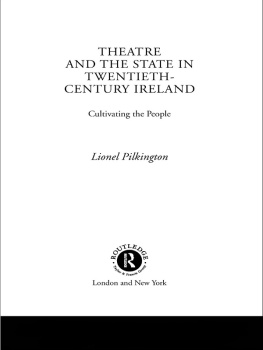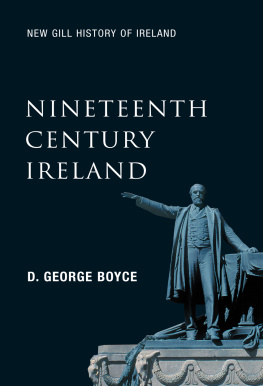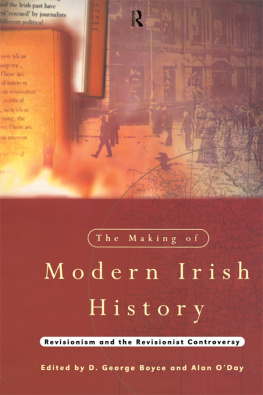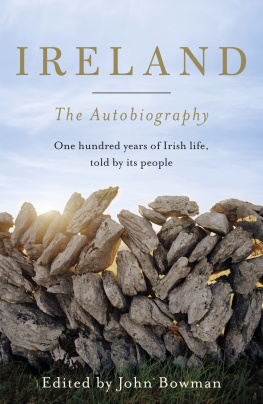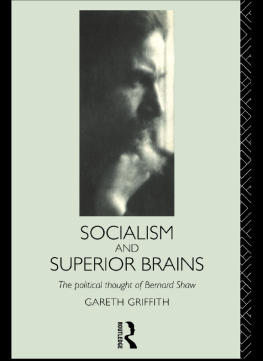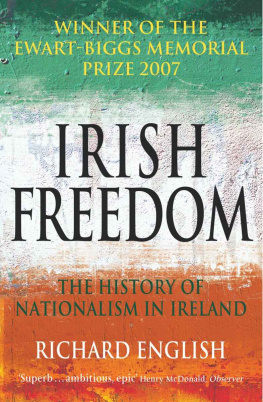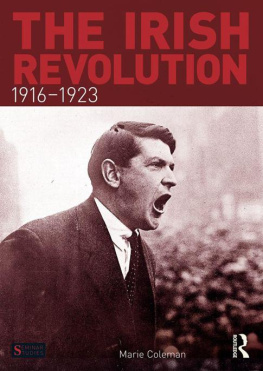Political Thought in Ireland Since the Seventeenth Century
Political Thought in Ireland Since the Seventeenth Century
Edited by
D. George Boyce, Robert Eccleshall and Vincent Geoghegan.
First published 1993
by Routledge
2 Park Square, Milton Park, Abingdon, Oxon, OX14 4RN
Transferred to Digital Printing 2005
Simultaneously published in the USA and Canada
by Routledge
270 Madison Ave, New York NY 10016
Editorial Matter D. George Boyce, Robert Eccleshall, Vincent
Geoghegan. Individual contributions Individual contributors
Phototypeset in 10 on 12 point Times by Intype, London
All rights reserved. No part of this book may be reprinted or reproduced or utilized in any form or by any electronic, mechanical, or other means, now known or hereafter invented, including photocopying and recording, or in any information storage or retrieval system, without permission in writing from the publishers.
British Library Cataloguing in Publication Data
A catalogue record for this book is available from the British Library
Library of Congress Cataloging in Publication Data
A catalogue record for this book is available from the Library of Congress
ISBN 0-415-01354-2
Contents
Breanddn Buachalla
Robert Eccleshall
Ian McBride
Vincent Geoghegan
D. George Boyce
Margaret O'Callaghan
Richard English
Jennifer Todd
Notes on contributors
D. George Boyce, who took his BA and Ph.D. at the Queen's University of Belfast, holds a personal chair in Politics at University College, Swansea. Among his recent publications are The Irish Question and British Politics 1868-1986 (1989), Nineteenth Century Ireland, the Search for Stability (1990), and Nationalism in Ireland (rev. edn, 1991).
Robert Eccleshall, who received his BA and Ph.D. from Hull University, is Professor and Head of the Department of Politics at the Queen's University of Belfast. His recent publications include British Liberalism (1986) and English Conservatism since the Restoration (1990).
Richard English, who was educated at Keble College, Oxford and the University of Keele, lectures in Politics at the Queen's University of Belfast. He is author of History of Ireland (1991) and co-editor with Cormac O'Malley of Prisoners: The Civil War Letters of Ernie O'Malley (1991). His Ph.D. thesis is to be published by Oxford University Press as Radicals and the Republic: Socialist Republicanism in the Irish Free State, 1925-37.
Vincent Geoghegan, Reader in Politics at the Queen's University of Belfast, received his BA and Ph.D. from Newcastle University. He is author of Reason and Eros: The Social Theory of Herbert Marcuse (1981) and of Utopianism and Marxism (1987), and has recently written articles on Golden Ages, the Irish Owenite Community at Ralahine, and the Irish Jacobite, James MacGeoghegan.
Ian McBride is a graduate of Jesus College, Oxford and University College, London, where his doctoral thesis was on Ulster Presbyterianism in the late eighteenth century. In 1992 he was elected to a research fellowship at the Institute of Historical Research, University of London.
Breandn Buachalla, a Member of the Royal Irish Academy, took his MA and Ph.D. at University College, Cork. Formerly a lecturer in Celtic at the Queen's University of Belfast, he is now Professor of Modern Irish Language and Literature at University College, Dublin. His publications include I mBal Feirste Cois Cuain (1968), Peadar Doirnn: amhrin (1969), Nua-Dhuanaire II (1975) and Cathal Bu: amhrdin (1976)
Margaret O'Callaghan, who lectures in Politics at the Queen's University of Belfast, was educated at University College, Dublin and St John's College, Cambridge. Formerly a Fellow of Sidney Sussex College, Cambridge and university lecturer in Modern British History, she is preparing her doctoral thesis, Crime, Nationality and the Law: The Politics of Land in Late Victorian Ireland, for publication.
Jennifer Todd, who received a BA from the University of Kent at Canterbury and a Ph.D. from Boston University, is a lecturer in Politics at University College, Dublin. She has written articles on aesthetics and politics as well as the Northern Ireland conflict. She is completing a book on the Northern Ireland conflict and preparing another on political ideologies in Northern Ireland.
Acknowledgements
Robert Eccleshall and Vincent Geoghegan wish to acknowledge the financial support of the Nuffield Foundation, and would also like to thank Gerry Fitzpatrick for his invaluable assistance during the preliminary stages of this volume. The editors are grateful for the advice and encouragement of Claire LEnfant.
Introduction
The history of political ideas in Ireland is largely unwritten. A fairly standard canon of 'major figures' has emerged, including Jonathan Swift, Henry Grattan, Edmund Burke, Thomas Davis and Arthur Griffith. But these all too often set the boundaries of such attention as the subject receives. 'Lesser mortals' are usually ignored; and some political traditions, conservatism for example, are regarded as either of no great importance as a subject for analysis, or as (in the case of socialism, at any rate before James Connolly) marginal to the political development of Ireland.
One reason is that Irish historiography has been little affected by recent methodological developments in intellectual history. From the perspective of the classic texts approach the search for the Irish Leviathan which, once found, is to be carefully dissected in the hope of discovering the essence of the human condition Ireland, along with many other societies, has comparatively little to offer the historian. During the last two decades, however, there has been a move away from regarding political texts as embodiments of eternal truths to a more contextual approach: one in which political theory is regarded not as the rarefied speculation of isolated individuals, but as a social activity conducted by numerous people using a variety of linguistic conventions. The effect has been dramatically to extend the canon of works to which attention can be legitimately devoted. In Ireland political thought is to be found in myth, law, literature, theology, folklore, in ballads, newspapers, parliamentary debates, pamphlets and sermons, as well as in the conventional texts. Furthermore, Ireland's political thinkers have displayed great heterogeneity, encompassing, for example, seventeenth-century bishops and poets; professors and conspirators in the eighteenth century; improving landlords, urban artisans, journalists in the last century; and politicians and literati in this. Yet Irish historiography has remained largely unaware of the rich pickings offered by a more contextual approach to political ideas.
Instead, emphasis is still placed upon men or women of action. Attention focuses on the origins and development of political movements; on struggles for power, rather narrowly conceived; on the doings of government, especially British government; on the administrative process; and on political violence and its consequences. All of these are of course of great importance, but Irish history more charged than that of most countries with the ferment and clash of ideas is then seen as a struggle to seize or for that matter retain power. And so the search is made for those who organized, brought pressure to bear on government, and established themselves in the place of British administration.


